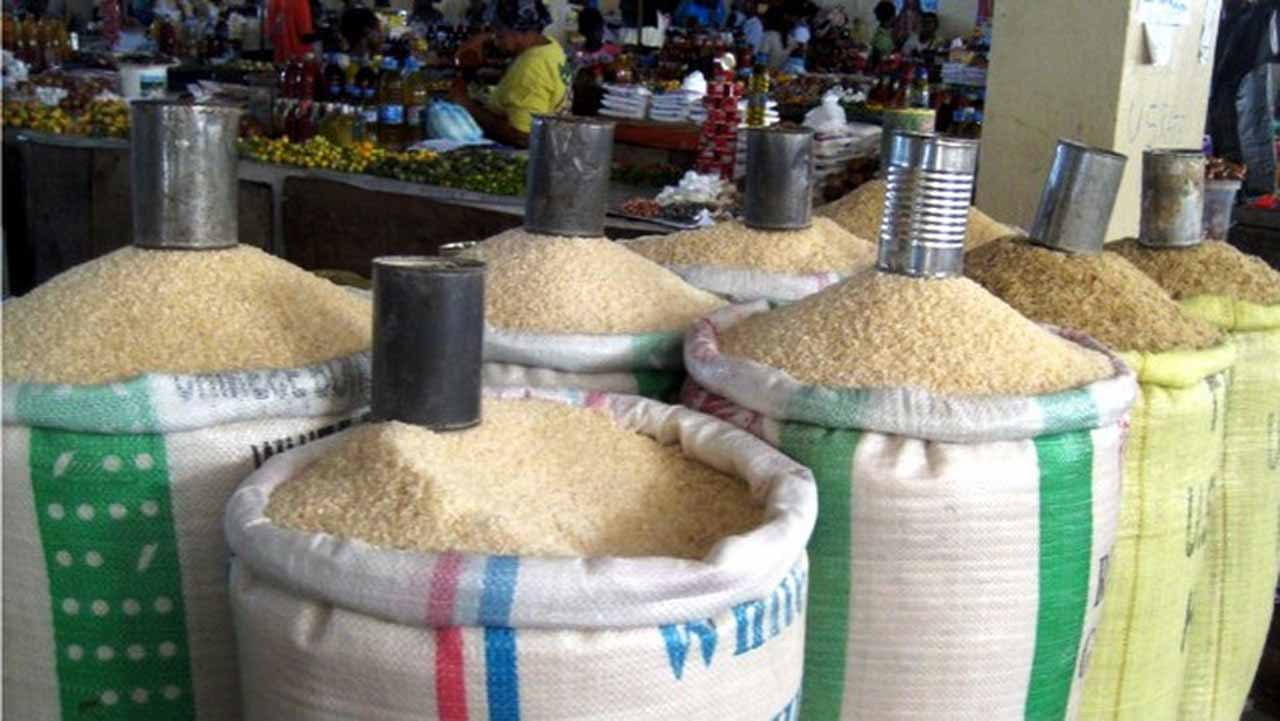
• MITROS Rice Not Available In Ogun Markets
• No Lake Rice Production
• No Special Arrangement For Rice Farming In Kaduna
• Farmers, Processors, Count Gains In Kano
In the wake of soaring price of local rice induced by closure of the borders, there is anxiety across the country regarding what the market would look like in the last two months of the year, especially festive periods of Christmas and New Year.
On August 21, 2019, President Muhammadu Buhari ordered a partial closure of the Seme border between Nigeria and Benin Republic and other borders with neighbouring Niger, Cameroun and others to check smuggling and illegal movement of light arms.
Since then, attention has shifted to production of local rice. Subsequently, the increased demand has led to price increase. A 50kg of locally produced rice that was sold for between N12, 500 and N13, 000 now sells between N24, 000 and N27, 000 in the last few weeks.
There was however, a ray of hope late last month when President of the Rice Farmers Association of Nigeria (RIFAN), Aminu Goronyo gave the public an assurance that a 50kg bag will soon sell for N9, 000. He also promised that more rice would flood the market to force down prices, against the claim that hoarding was responsible for the price hike.
Aminu Goronyo said: “We have a bumper harvest that we never had before. We have never had the type of bumper harvests that we recorded this year…There are enemies of this country who buy and store this commodity just because they want to create artificial scarcity…Our promise is that Nigerians will continue to get this commodity at an affordable price and it will be available.
“I don’t think the price will go up, rather the only thing we hope is that the price will continue to come down and definitely it will. Some of our millers sell at N12, 000 and we hope that Nigerians will buy a 50kg milled rice at between N9, 000 and N10, 000,” Goronyo added.
But based on findings, his projections are far from reality because of the negative signals coming from rice producing states and others who claimed to have invested heavily in rice cultivation.
Rather than the market witnessing a deluge of rice from the states to force down current high prices, rice from states have suddenly disappeared from markets, contrary to claims of massive investment to boost rice production.
The question on the lips of rice-loving citizens, is whither government-cultivated rice?
OGUN
Currently, Ogun State branded rice-MITROS Rice has vanished from the market, according to findings. Since the state allegedly rolled out 150,000 bags in November 2018, the product is not seen in the market, especially during the festive season when it was needed most. A section of the state residents, especially those living far from the state capital claimed little is heard of the brand.
From findings, only few people had access to it. It was alleged that access to the brand is complicated, as you could not walk into any market and get MITROS rice.
Even now, when the state ought to capitalise on the border closure to register its presence, it was confirmed by a reliable source that there is no MITROS rice in the market and there may not be any till next year.
The source disclosed that the milling machine at the Asero processing plant, has packed-up and there is no plan in the offing to put it back to work.
But the privately produced Ofada rice is thriving, but not in great quantities to saturate the markets.
LAGOS
Apart from the three years (2016-2018) LAKE Rice was made available to Lagosians that record was broken last December. The brand has totally disappeared from circulation.
In all the markets visited in Lagos, there was no Lake Rice for sale. At Amuwo-Odofin Shopping Centre, one of the traders said she last sold the brand in April.
Those in Mile 2 Oke market said they never sold Lake Rice. At Daleko Market, one of the traders claimed he sold the last batch about a month ago, which was at N18, 500. This was far higher than the price the state government pegged it.
The new administration of Babajide Sanwo-Olu promised return of Lake Rice, but without subsidy, meaning an over 15 per cent price increase.
Before it went off the market, a 50kg sold for N12, 000; 25kg for N6, 000 and 10kg for N2, 500 in about 10 locations across the state, designated as sales points. The state government then said residents could only buy one bag, as it wanted to ensure that the rice got to everybody.
To increase the availability of Lake Rice beyond the 10 sales points, in December 2017, the state government sought the participation of major rice distributors by signing a partnership with them for the transportation, distribution and marketing of Lake Rice.
However, in the third quarter of 2018, after the government had signed the Memorandum of Understanding (MoU) for mass distribution and sales, the rice was no longer available at sales points and markets. And that was the scenario till former Governor Akinwunmi Ambode left office in May till now.
On the non-availability of the rice in markets, a source in the ministry of agriculture said the state government buys from Kebbi State, bag it and sell in Lagos, contrary to claims that the state has rice plantations in Kebbi.
“The process to buy another batch has not been concluded, reason it has not been in the market.”
KADUNA
Despite the border closure, there are no special arrangements by the Kaduna State Government tap into vast local market with investment in rice production.
As one of the main rice producing states, majority of Nigerians are expecting nothing less from the Kaduna in terms of championing rice production.
A market survey by The Guardian across markets, show that a 50kg bag of local rice previously sold for N9, 000 now sells for N15, 500. For instance, at Bakin-Dogo Market, a bushel of local rice previously sold at the rate of N350 is now N550.
The Secretary of Rice Farmers Association of Nigeria, Kaduna State chapter, Mr. Ishaya Audu, who confirmed the development, linked it to government’s failure to invest and boost rice cultivation.
“We have been trying to discuss with the Governor. We have written series of letters on our willingness as rice farmers to meet him, to address this issue; we are yet to be given audience. Rice farmers in Kaduna are cultivating without any serious intervention from government, which is the problem. The warehouse we are using now belongs to the state government, despite that, we still have to pay them for rent, which ought not to be so.”
He called on the state government to assist rice farmers, especially by building dams for dry season rice farming. “If they build dams in different locations, rice farmers will have the opportunity of cultivating rice three times in a season.”
KANO
The border closure is a boost for local rice production in Kano State, as farmers, processors and traders record increase in sales and marginal returns.
With about 20,000 growers and an average yield of 3.72 tons in both wet and dry seasons, rice production and patronage could do much better without the influx of foreign brands.
A Rice farmer, Munzali Jibril told The Guardian that the border closure has boosted his production from five hectares to 20 due to increased demand.
Munzali added that gone are the days when farmers passed through series of middle men before pushing their paddy to markets at average cost of N7, 000, saying a 75kg of paddy now goes for between N9, 000 and N11, 000.
“Honestly, the closure of the borders is more or less a blessing to we farmers, especially because rice farmers have more opportunity to expand our production because there is ready market for our produce.”
Alhaji Abba Dantata, a rice m illers Kano, said the border closure would enable processors redouble their capacity.
Abba said before the closure, majority of rice millers in Kano were almost running bankrupt due to low sales, the development, which he said would have led to job losses and economic collapse.
He explained that millers are presently pushing out 10 trucks of finished products to the markets on daily basis. He said no less than 70 jobs in his company would have been lost, if not for the government intervention.
According to him: “Before border closure, when foreign rice dominated the market, we hardly moved five trucks of locally processed rice. The action has really helped the millers because, we can now get more paddy as farmers are now redoubling their production capacity.”
Aminu Yakubu, a rice retailer in the popular Singer, in Sabon Gari market, Kano, said local rice now sells for between N14, 500 and N16, 000.
“Local rice is selling more than foreign rice now. Before you sell five bags of foreign brands, 10 bags of local rice would have been purchased. Let me tell you, many people are even afraid of selling foreign rice now because of Customs. If you cannot prove that the ones in your store are old stocks, the Customs will arrest and dispossess you of the rice.”






